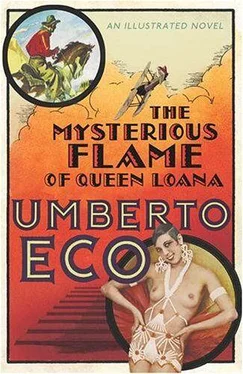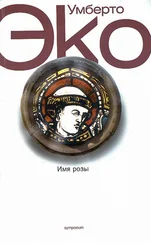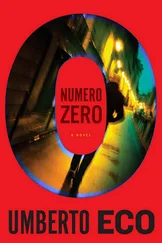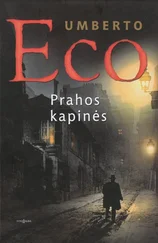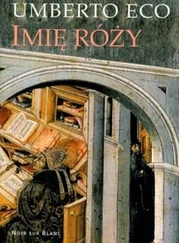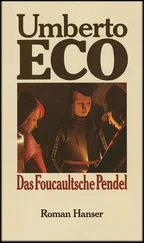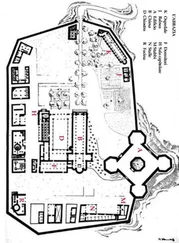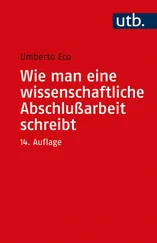Umberto Eco - The Mysterious Flame Of Queen Loana
Здесь есть возможность читать онлайн «Umberto Eco - The Mysterious Flame Of Queen Loana» весь текст электронной книги совершенно бесплатно (целиком полную версию без сокращений). В некоторых случаях можно слушать аудио, скачать через торрент в формате fb2 и присутствует краткое содержание. Жанр: Исторический детектив, на французском языке. Описание произведения, (предисловие) а так же отзывы посетителей доступны на портале библиотеки ЛибКат.
- Название:The Mysterious Flame Of Queen Loana
- Автор:
- Жанр:
- Год:неизвестен
- ISBN:нет данных
- Рейтинг книги:3 / 5. Голосов: 1
-
Избранное:Добавить в избранное
- Отзывы:
-
Ваша оценка:
- 60
- 1
- 2
- 3
- 4
- 5
The Mysterious Flame Of Queen Loana: краткое содержание, описание и аннотация
Предлагаем к чтению аннотацию, описание, краткое содержание или предисловие (зависит от того, что написал сам автор книги «The Mysterious Flame Of Queen Loana»). Если вы не нашли необходимую информацию о книге — напишите в комментариях, мы постараемся отыскать её.
The Mysterious Flame Of Queen Loana — читать онлайн бесплатно полную книгу (весь текст) целиком
Ниже представлен текст книги, разбитый по страницам. Система сохранения места последней прочитанной страницы, позволяет с удобством читать онлайн бесплатно книгу «The Mysterious Flame Of Queen Loana», без необходимости каждый раз заново искать на чём Вы остановились. Поставьте закладку, и сможете в любой момент перейти на страницу, на которой закончили чтение.
Интервал:
Закладка:
A soldier comes up to him and whispers that the hill has been taken. The author now speaks for Valente: "What does it mean to die? It is the word, usually, that is frightening. Now that he is dying, and knows it, he feels neither heat, nor cold, nor pain." He knows only that he has done his duty and that the loma he has conquered will bear his name.
I understood from the tremor that accompanied my adult rereading of those few pages that they had offered me my first vision of actual death. That image of blades of grass as thick as stakes seemed to have inhabited my mind from time immemorial, I could almost see them as I was reading. Indeed I had the feeling that as a child I had often repeated, as a sacred rite, a descent into the garden, where I would lie prone, my face flattened against some patch of redolent grass, in order to really see those stakes. That reading had been the fall on the road to Damascus that had marked me, perhaps, forever. It was during those same months that I had written the composition that now so disturbed me. Was such duplicity possible? Or had I read the story after writing the composition, and had everything changed from that moment?
I had come to the end of my elementary school years, which concluded with the death of Valente. The middle-school books were less interesting-Fascist or not, if your subject is the seven kings of Rome or polynomials, you have to say more or less the same things. But among my middle-school materials were notebooks called "Chronicles." Some kind of curriculum reform had taken place, and we were no longer assigned compositions on fixed topics, but were apparently encouraged to recount episodes from our lives. And we had a different teacher, who read all the chronicles and marked them in red pencil, not with a grade but with a critical comment regarding their style or inventiveness. It was clear from the feminine endings of certain words in those comments that the teacher was a woman. Clearly an intelligent woman (perhaps we adored her, because reading those red messages I sensed that she must have been young and pretty and, God knows why, very fond of lilies of the valley), who had tried to push us to be sincere and original.
One of my most highly praised chronicles was the following, dated December 1942. I was eleven by then, but only nine months had passed since the earlier composition.
Chronicle: The Unbreakable Glass
Mother had purchased an unbreakable glass. But it was actual glass , real glass , and I was dumbfounded , because when this event took place , the undersigned was only a few years old , and his mental faculties were not yet so well developed that he could imagine that a glass , a glass similar to the ones that went crash! when they fell ( leading to a good cuffing ) could be unbreakable.
Unbreakable! It seemed like a magic word. The boy tries it once , twice , three times , and each time the glass falls , bounces with a terrible racket , and remains intact.
One evening some family friends come by and chocolates are passed around ( note that back then those delicacies still existed , and in great number ) . With my mouth full ( I no longer recall the brand , Gianduia or Strelio or Caffarel-Prochet ), I proceed to the kitchen and return with the famous glass.
" Ladies and gentlemen ," I exclaim , with the voice of a ringmaster calling out to passersby to attend the show , " I present to you a unique , magic , unbreakable glass. I will now throw it to the ground and you will see that it will not break ," and in a grave and solemn manner I add , " IT WILL REMAIN INTACT. "
I throw it , and… needless to say , the glass shatters into a thousand pieces.
I feel myself turn red , I stare in shock at those shards that , struck by the light of the chandelier , are gleaming like pearls… and I burst into tears.
End of my story. Now I was trying to analyze it as though it were a classic text. I was writing about a pretechnological society, in which an unbreakable glass was a rarity, and people would purchase a single glass to try it out. Breaking it was not only a humiliation, but also a blow to the family finances. It was thus a story of defeat on all fronts.
My story, from 1942, evoked the prewar period as a happier era, when chocolates were still available, and foreign brands at that, when people received guests in their living rooms or in their dining rooms beneath a bright chandelier. The appeal I had made to my audience had not resembled Il Duce’s appeals from the balcony of Palazzo Venezia, but had rather the ridiculous air of the barkers I may have heard at the market. I was evoking a gamble, an attempted triumph, an incorruptible certainty, and then, with a nice anticlimax, I reversed the situation and recognized that I had lost.
It was one of the first stories that was truly mine, not the repetition of schoolboy clichés nor the rehashing of some adventure novel. The drama of a promissory note not made good. In those shards that, lit by the chandelier, gleamed (falsely) like pearls, I was celebrating at the age of eleven my own vanitas vanitatum and professing a cosmic pessimism.
I had become the narrator of a failure, whose breakable objective correlative I represented. I had become existentially, if ironically, bitter, radically skeptical, impervious to all illusion.
How can a person change so much in the course of nine months? Natural growth, no doubt, one gets cleverer with age, but there was more: the disillusionment caused by broken promises of glory (perhaps I, too, still in the city then, was reading the newspapers my grandfather had underlined), and my encounter with the death of Valente, whose heroic act had resolved into that terrible image of rot-green stakes, the final fence separating me from the underworld and the fulfillment of every mortal’s natural fate.
In nine months I had become wise, with a sarcastic, disenchanted wisdom.
And what of everything else: the songs, Il Duce’s speeches, the oh-babys, and the idea of facing death with grenades in hand and a flower between our teeth? Judging by the headings in my notebooks, I spent the first year of middle school, during which I had written that chronicle, still in the city, then the next two years in Solara. Meaning that my family had decided to evacuate definitively to the country, because the first bombardments had finally reached our city. I had become a citizen of Solara in the wake of my remembrance of that broken glass, and my remaining chronicles, from the second and third years of middle school, were all remembrances of better, bygone times, when if you heard a siren you knew it came from the factory and you said to yourself, "It’s noon, father will be home soon," stories about how great it would be to return to a peaceful city, reveries about the Christmasses of yesteryear. I had taken off my Balilla Boy uniform and had become a little decadent, devoted already to the search for lost times.
And how had I spent the years from 1943 to the end of the war, the darkest years, with the Partisan struggle and the Germans no longer our comrades? Nothing in the notebooks, as if speaking of the horrid present had been taboo and our teachers had encouraged us not to do it.
I was still missing some link, perhaps many links. At some point I had changed, but I did not know why.
10. The Alchemist’s Tower
____________________
I felt more confused than I had when I arrived. At least before I remembered nothing, absolute zero. Now, I still could not remember, but I had learned too much. Who had I been? The Yambo shaped by school and by the kind of "public education" carried out through Fascist architecture, propaganda postcards, street posters, and songs, the Yambo of Salgari and Verne, of Captain Satan, of the savagery of The Illustrated Journal of Voyages and Adventures , of the crimes of Rocambole, of the Paris Mysterieux of Fantômas, and of the fog of Sherlock Holmes; or the Yambo of Ciuffettino, and of the unbreakable glass? Or all of them?
Читать дальшеИнтервал:
Закладка:
Похожие книги на «The Mysterious Flame Of Queen Loana»
Представляем Вашему вниманию похожие книги на «The Mysterious Flame Of Queen Loana» списком для выбора. Мы отобрали схожую по названию и смыслу литературу в надежде предоставить читателям больше вариантов отыскать новые, интересные, ещё непрочитанные произведения.
Обсуждение, отзывы о книге «The Mysterious Flame Of Queen Loana» и просто собственные мнения читателей. Оставьте ваши комментарии, напишите, что Вы думаете о произведении, его смысле или главных героях. Укажите что конкретно понравилось, а что нет, и почему Вы так считаете.
